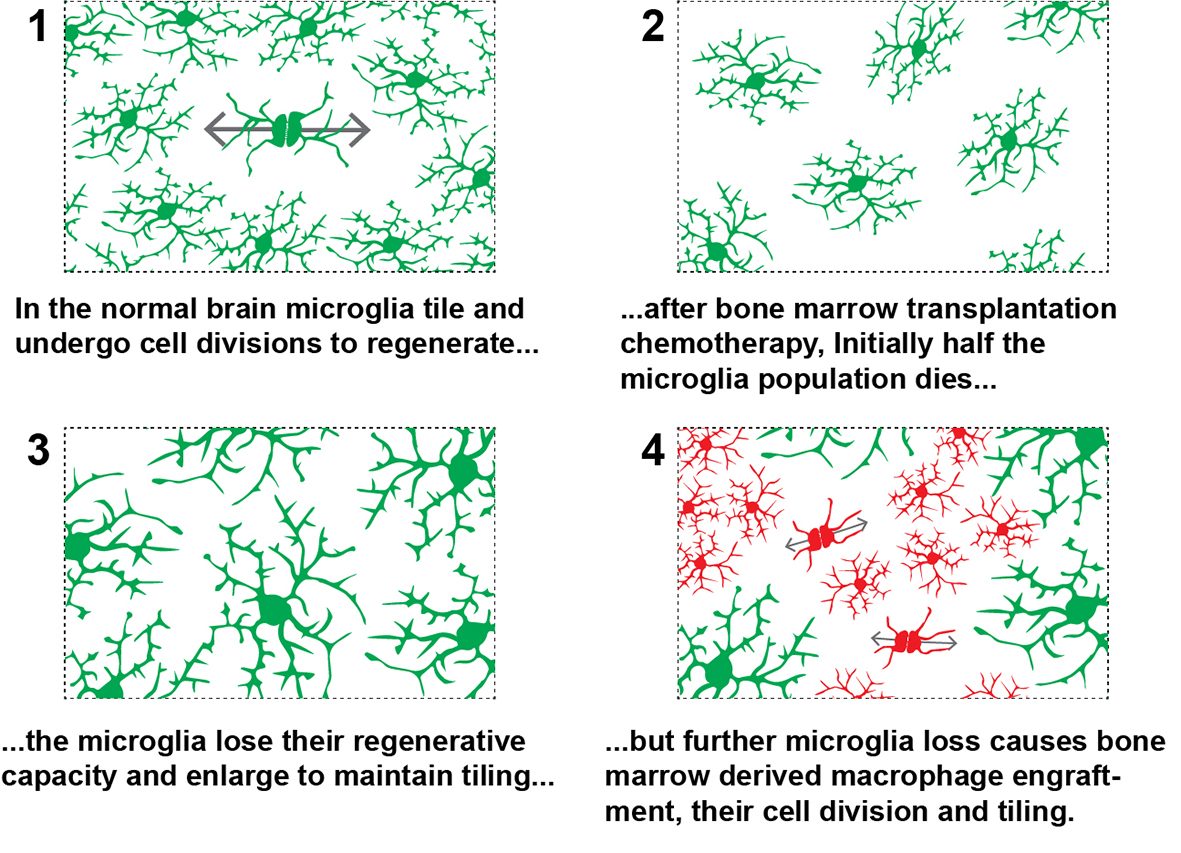About
 Bone marrow transplantation is a frequently used clinical procedure for the treatment of various blood diseases, cancers and for certain demyelinating disorders of the brain and spinal cord. It is now known that peripheral cells engraft the brain but by an unclear mechanism. In this project we explored the effect of the myeloablative chemotherapy used in bone marrow transplantation on microglia, the brain’s resident immune cells. To pursue this research, we launched a project in 2016 in collaboration with Nathalie Cartier’s group at the Paris Brain Institute, with funding provided from bluebird bio, Inc.
Bone marrow transplantation is a frequently used clinical procedure for the treatment of various blood diseases, cancers and for certain demyelinating disorders of the brain and spinal cord. It is now known that peripheral cells engraft the brain but by an unclear mechanism. In this project we explored the effect of the myeloablative chemotherapy used in bone marrow transplantation on microglia, the brain’s resident immune cells. To pursue this research, we launched a project in 2016 in collaboration with Nathalie Cartier’s group at the Paris Brain Institute, with funding provided from bluebird bio, Inc.
Summary of findings:
- Bone marrow transplantation chemotherapy caused a complete and rapid loss of all adult neurogenesis.
- Host microglia are partially depleted and expand their process, potentially to maintain brain tiling.
- Chemotherapy with busulfan causes microglia cell cycle arrest in G1/S-phase and inability to progress to G2.
- Host microglia activate expression of p21, a transient cellular senescence and anti-apoptotic marker.
- Chemotherapy causes microglia to permanently lose their regenerative capacity, with their gradual decline, a density tipping point is reached and peripheral derived macrophages permissively engraft the brain.
This project completed in 2020 and culminated into a research article in Nature Medicine (https://www.nature.com/articles/s41591-022-01691-9) along with a research briefing (https://www.nature.com/articles/s41591-022-01722-5). This study showed a mechanism for how bone marrow transplantation can treat brain and spinal cord diseases, providing a foundation for developing further cell based gene therapy strategies to treat neurodegenerative disorders.





